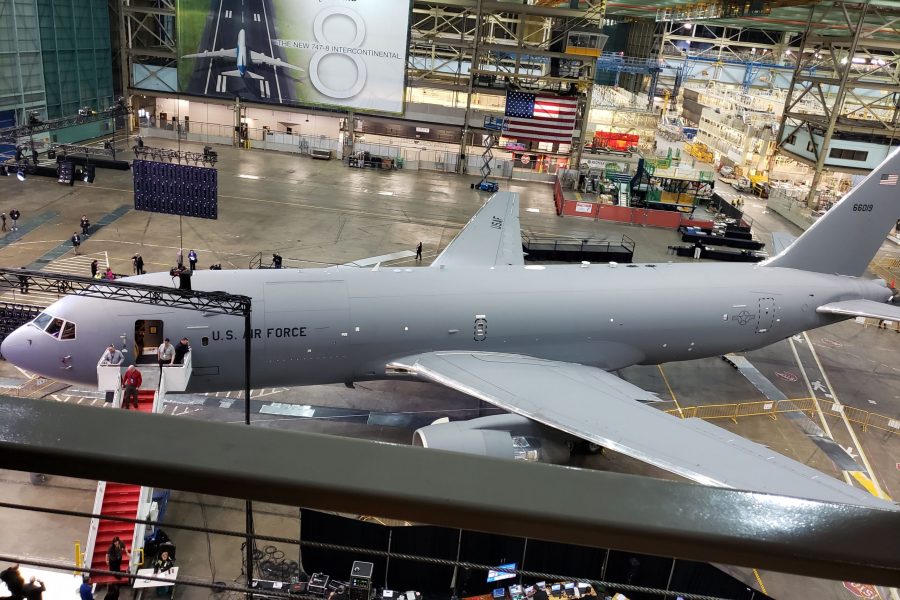The Air Force has officially delayed the KC-46’s full-rate production decision milestone until 2024 as the next-generation tanker works through problems plaguing its Remote Vision System, the service announced June 8.
The Air Force and the Pentagon’s Director of Operational Test and Evaluation decided the KC-46’s initial operational test and evaluation will only conclude after the RVS deficiencies are resolved, and the Air Force Operational Test and Evaluation Center has tested the aircraft in its final production configuration, the service said in a statement.
“Accordingly, the Air Force will defer the KC-46 Full Rate Production decision until after the completion of IOT&E, and the receipt of the statutorily required Beyond Low Rate Production report from DOT&E,” the Air Force said. “Given its confidence in deficiency resolution timelines for both the aerial refueling boom and Remote Vision System, the Air Force is rescheduling the KC-46’s Full Rate Production Decision milestone to late fiscal year 2024.”
KC-46 full rate production was originally slated for June 2017, and has been pushed back multiple times. The latest delay will not add any “contractual cost or delivery impacts,” the service said.
The expected announcement comes after Air Mobility Command boss Gen. Maryanne Miller said last fall that while the tanker had entered the beginning of IOT&E, the aircraft would “not come out of IOT&E until RVS is fixed.” Service leaders have said the new tanker is not deployable for another four years because of the issues.
In April, the Air Force and Boeing agreed on an overhaul of the RVS—a collection of cameras, sensors, and screens the operator uses to remotely control the aircraft’s refueling boom. The current system is problematic in multiple ways, including issues with lighting, low-quality imagery, and warped views of aircraft. The new system includes 4K color cameras with proper viewing geometry, larger and higher definition screens, a laser ranger for refueling aircraft distance measurement, and augmented reality. Boeing expects to spend $551 million of its own money on the design and implementation of the new system, with fielding planned in 2023.
